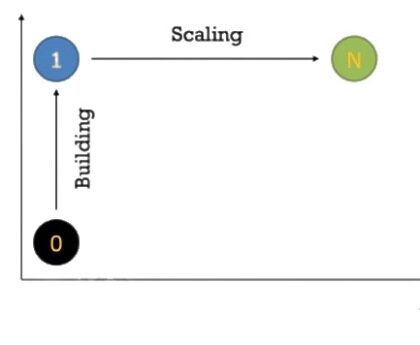In today’s digital-first world, educational institutions are evolving rapidly, and so are their administrative needs. Managing a school efficiently is no longer just about keeping records—it’s about automation, accessibility, and real-time collaboration. This is where a School ERP (Enterprise Resource Planning) system comes into play, revolutionizing school management by streamlining operations, improving communication, and enhancing learning outcomes.
But the real question is: Should a school opt for a cloud-based ERP or an offline ERP? The answer lies in understanding the long-term benefits of a cloud-based School ERP over traditional offline systems.
Why is a School ERP Important?

A School ERP acts as the digital backbone of an educational institution. It integrates multiple school functions into a single system, offering modules for:
- Student Information Management – Stores attendance, grades, and progress reports in one place.
- Fee & Finance Management – Automates fee collection, invoicing, and payroll.
- Admissions & Enrollment – Simplifies the admission process, reducing paperwork.
- Attendance & Timetable Management – Tracks student and teacher attendance in real time.
- Library & Inventory Management – Kept a record of books and school assets efficiently.
- Parent & Teacher Communication – Ensures seamless interaction via mobile apps and notifications.
- Examination & Results Processing – Automates grading and report card generation.
- Transport Management – Tracks school buses with GPS and ensures student safety.
By automating these functions, a School ERP reduces manual work, minimizes errors, and enhances productivity—leading to a more organized and efficient school environment.
Cloud vs. Offline ERP: Which One Is Better?
While some schools still rely on offline ERP systems installed on local computers, cloud-based ERPs have become the preferred choice due to their flexibility, security, and cost-effectiveness. Let’s break it down:
- Accessibility Anytime, Anywhere
Offline ERP: Limited to school premises. Staff must be on campus to access records.
Cloud ERP: Accessible from anywhere-whether at home, on a trip, or during emergencies. Teachers, administrators, and parents can log in from any device. - Automatic Updates & Scalability
Offline ERP: Requires manual software updates, which can be time-consuming and expensive.
Cloud ERP: Automatically updates to the latest features, security patches, and compliance requirements without disrupting operations. - Data Security & Backup
Offline ERP: Risk of data loss due to system crashes, hardware failures, or cyber threats. Backup must be done manually.
Cloud ERP: Data is stored securely with auto-backup, encryption, and multi-layer security, reducing the risk of data loss or breaches. - Cost-Effectiveness & Maintenance
Offline ERP: Requires heavy upfront investment in servers, IT infrastructure, and regular maintenance.
Cloud ERP: Works on a subscription-based model (SaaS), reducing capital expenditure. No need for expensive IT staff or maintenance costs. - Seamless Integration & Collaboration
Offline ERP: Harder to integrate with third-party tools (like online learning platforms, payment gateways, or messaging apps).
Cloud ERP: It easily integrates with various ed-tech solutions, offering a seamless experience for students, teachers, and parents. - Real-Time Communication & Notifications
Offline ERP: Limited communication features; requires manual updates for parents.
Cloud ERP: Instant notifications, SMS, emails, and mobile apps keep parents updated on attendance, grades, and school events. - Eco-Friendly & Paperless Operations
Offline ERP: Schools still rely on paper-based communication and record-keeping.
Cloud ERP: It promotes a paperless environment, reducing costs and contributing to sustainability.
The Future of School Management is in the Cloud
A cloud-based School ERP is not just an upgrade—it’s a necessity in today’s fast-paced, digital education system. Schools that adopt cloud technology gain a competitive edge, ensuring smoother operations, better engagement, and a smarter learning environment.
Why stay limited when you can manage your school with ease, efficiency, and innovation?
If your school is still relying on an offline ERP, now is the time to make the switch to the cloud and unlock the full potential of automation and digital transformation.


